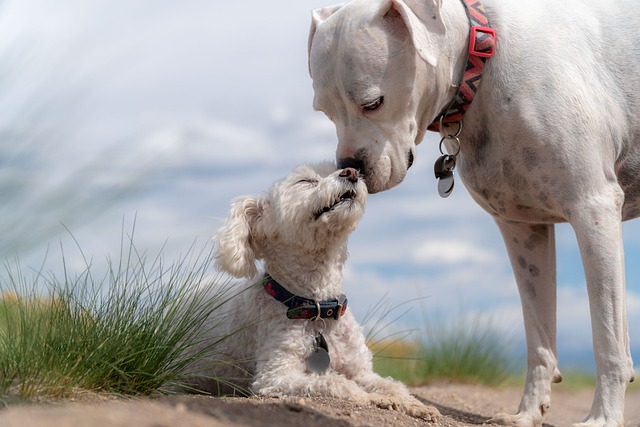Signs of Canine UTIs
Canine urinary tract infections (UTIs) can be a common health issue that affects our furry friends. Although dogs cannot express their discomfort in words, there are certain signs that may indicate the presence of a UTI. Paying attention to these signs is crucial in ensuring prompt treatment and a speedy recovery for your beloved pet.
One of the most noticeable signs of a possible UTI in dogs is frequent urination. You may notice your dog needing to go outside more frequently than usual, and they may also have accidents inside the house. Additionally, your dog may appear to strain or experience difficulty while urinating. This could be accompanied by visible discomfort, whining, or vocalization during the process. Keep a close eye on your dog’s toilet habits to identify any changes that could be indicative of a UTI.
• Frequent urination: Dogs may need to go outside more often than usual or have accidents inside the house.
• Straining or difficulty while urinating: Your dog may appear to be in discomfort and may whine or vocalize during the process.
• Changes in toilet habits: Pay attention to any noticeable changes in your dog’s urination patterns, as this could be a sign of a UTI.
Causes of Canine UTIs
Canine urinary tract infections (UTIs) are a common health concern among our furry companions. These infections occur when bacteria enter the urinary tract, leading to inflammation and discomfort for our dogs. There are several factors that can contribute to the development of UTIs in canines.
One common cause of canine UTIs is poor hygiene. Dogs that are not properly cleaned or groomed can easily accumulate bacteria around their genital area, increasing the risk of infection. Additionally, dogs with underlying health conditions such as diabetes or obesity are more susceptible to UTIs. These conditions weaken the immune system, making it harder for the body to fight off harmful bacteria. Finally, urinary tract obstructions, such as bladder stones or tumors, can also be a cause of UTIs in dogs. These obstructions can block the normal flow of urine, creating an environment where bacteria can thrive. It is important to be aware of these causes and take preventive measures to protect our furry friends from developing UTIs.
Common Home Remedies for Canine UTIs
One common home remedy that can help alleviate symptoms of canine urinary tract infections is increased water intake. It is important to ensure that your dog stays well-hydrated to promote the flushing of bacteria from the urinary system. Encourage your furry friend to drink plenty of fresh, clean water throughout the day. It may be helpful to place multiple water bowls around your home to make it easily accessible for your pet.
Another home remedy for canine UTIs is the use of probiotics. Probiotics are beneficial bacteria that can help restore the balance of microorganisms in your dog’s urinary tract. Incorporating probiotic supplements or foods that contain natural probiotics into your pet’s diet may help prevent the growth of harmful bacteria and support urinary health. However, it is crucial to consult with a veterinarian before introducing any new supplements to your dog’s routine to ensure an appropriate dosage and to rule out any underlying conditions.
Remember, while these home remedies may provide relief for mild cases, they should not replace professional veterinary care. If your dog is exhibiting signs of a urinary tract infection or if the symptoms worsen, it is important to consult with a veterinarian for proper diagnosis and treatment.
Importance of Early Detection and Treatment
Early detection and treatment of canine urinary tract infections (UTIs) is crucial for the overall health and well-being of our furry friends. UTIs can cause discomfort and pain in dogs, and if left untreated, they may lead to more serious complications. By identifying the signs of a UTI early on and seeking prompt veterinary care, we can ensure a faster and more effective resolution of the problem.
One of the key reasons why early detection is vital is because it allows for quicker intervention and prevents the infection from spreading. UTIs in dogs can progress rapidly, affecting not only the urinary system but also other organs such as the kidneys and bladder. Timely detection enables veterinarians to accurately diagnose the condition, prescribe appropriate treatment, and prevent the infection from causing more serious harm to our canine companions. Additionally, early treatment can help alleviate discomfort and prevent the UTI from becoming chronic, saving both the dog and its owner from unnecessary suffering and frequent trips to the veterinary clinic.
Dietary Changes to Help Manage Canine UTIs
Many veterinarians recommend making dietary changes to help manage canine urinary tract infections (UTIs). By adjusting your dog’s diet, you can help create an environment that prevents the growth of bacteria in their urinary tract. One important dietary change is to increase the moisture content of their food. Dry kibble tends to be dehydrating and can lead to concentrated urine, making the urinary tract more susceptible to infections. Adding wet food or incorporating water into their meals can help maintain proper hydration and flush out bacteria more effectively.
Additionally, it is crucial to choose the right type of food for your dog with a UTI. A diet that is low in purines can be beneficial as purines break down into uric acid, which can contribute to the formation of urinary crystals and stones. Opt for dog food that is specifically formulated for urinary health, as these usually have lower purine levels. It is also recommended to avoid food additives, fillers, and artificial ingredients that may irritate the urethra and worsen the condition. Making these dietary changes can play a significant role in managing canine UTIs and promoting your dog’s overall urinary health.
Proper Hydration for Canine UTIs
Maintaining proper hydration is crucial in managing a canine urinary tract infection (UTI). A well-hydrated urinary system helps flush out toxins and bacteria, promoting a healthy urinary tract. Encouraging your furry friend to drink plenty of water throughout the day is essential to support their overall urinary health.
One way to ensure your canine companion stays hydrated is by providing them with fresh and clean water at all times.

The Role of Cranberry Juice in Canine UTI Management
Cranberry juice is often hailed as a popular remedy for urinary tract infections (UTIs) in humans. But does it work the same way for our furry friends? While there is some anecdotal evidence suggesting that cranberry juice may help manage canine UTIs, more research is needed to determine its effectiveness.
Cranberries contain compounds called proanthocyanidins, which are believed to prevent bacteria, particularly Escherichia coli, from attaching to the walls of the urinary tract. This action may help reduce the risk of UTIs and alleviate symptoms in humans. However, the same benefits have not been extensively studied or proven in dogs. It is important to consult with a veterinarian before integrating cranberry juice or any other home remedy into your dog’s treatment plan for UTIs.
Herbal Supplements for Canine UTI Relief
Herbal supplements can be a natural and effective alternative for providing relief to dogs suffering from urinary tract infections (UTIs). These supplements are made from various plant extracts and herbs known for their medicinal properties. They can help support the overall health of the urinary system and reduce inflammation, which is a common symptom of UTIs in canines. Some popular herbal supplements used to alleviate canine UTIs include uva ursi, marshmallow root, and dandelion leaf. However, it is crucial to consult with a veterinarian before administering any herbal supplement to ensure the correct dosage and to rule out any potential interactions with other medications.
When considering herbal supplements for canine UTI relief, it’s important to keep in mind that natural remedies may not be suitable for all dogs or all types of UTIs. They should be used as a complementary approach alongside appropriate veterinary care. While herbal supplements may help alleviate the symptoms, they do not address the underlying cause of the UTI, such as bacterial infection. Therefore, if a dog shows prolonged or severe symptoms, it is essential to consult a veterinarian for a proper diagnosis and treatment plan. A holistic approach, combining herbal supplements with conventional veterinary medicine, can provide the best care for dogs suffering from UTIs.
Natural Antibiotics for Canine UTIs
When it comes to treating canine urinary tract infections (UTIs), natural antibiotics can be an effective option. These natural alternatives can help fight off the infection without the potential side effects and risks associated with conventional antibiotics. One such natural antibiotic is garlic. Garlic contains allicin, a compound known for its antimicrobial properties. Adding a small amount of finely chopped garlic to your dog’s meals can help to tackle the UTI-causing bacteria. However, it is important to note that garlic should always be used in moderation and under the guidance of a veterinarian, as excessive amounts can be harmful to dogs.
Another natural antibiotic that can be beneficial in managing canine UTIs is oregano oil. Oregano oil contains carvacrol, which possesses strong antibacterial properties. Mixing a few drops of oregano oil with a carrier oil, such as coconut oil, and applying it topically around your dog’s urinary opening can help to kill the bacteria causing the infection. However, it is important to dilute the oregano oil properly, as it can be too potent and cause skin irritation if used undiluted. Additionally, it is crucial to consult with your veterinarian before using oregano oil to ensure it is safe and appropriate for your dog’s condition.
(Word count: 244)
Preventive Measures for Recurring Canine UTIs
One key step in preventing recurring urinary tract infections (UTIs) in dogs is maintaining good hygiene. After your dog urinates or defecates, it is important to clean their genital area to remove any bacteria or pathogens that may lead to an infection. Use a clean, damp cloth or pet-friendly wipes to gently clean the area. Additionally, regularly bathing your dog helps to keep their skin clean and lowers the risk of bacterial growth that could contribute to UTIs.
Another preventive measure is ensuring that your dog always has access to fresh, clean water. Adequate hydration is crucial for flushing bacteria out of the urinary tract. It is recommended to monitor your dog’s water intake and encourage them to drink regularly throughout the day. If necessary, you can add some flavor to the water, such as a low-sodium broth, to entice your dog to drink more. Remember, proper hydration serves as a simple yet effective measure to prevent recurring canine UTIs.
When to Consult a Veterinarian for Canine UTIs
If your furry friend is exhibiting any signs of a urinary tract infection (UTI), it is crucial to consult a veterinarian promptly. Any delay in seeking veterinary care may result in further complications and discomfort for your canine companion. Canine UTIs can be painful and have the potential to develop into more severe conditions if left untreated. Therefore, it is essential to recognize the signs and seek professional help as soon as possible.
Common symptoms of a UTI in dogs include frequent urination, urgency to urinate, straining while urinating, blood in the urine, and accidents in the house despite being house-trained.

Alternative Therapies for Canine UTI Management
Alternative therapies can be used alongside traditional treatment options to help manage canine urinary tract infections (UTIs). One such therapy is acupuncture, which involves inserting thin needles into specific points on the dog’s body. Acupuncture has been used for centuries to relieve pain and promote healing. In the case of canine UTIs, acupuncture can help stimulate the immune system, reduce inflammation, and promote proper urinary function. Many pet owners have reported positive results with acupuncture as a complementary therapy for UTI management.
Another alternative therapy that can be beneficial for dogs with UTIs is herbal medicine. Certain herbs, such as uva ursi and goldenrod, have antibacterial properties and can help alleviate UTI symptoms. Additionally, herbs like marshmallow root and corn silk can soothe and protect the urinary tract, reducing discomfort and inflammation. When used under the guidance of a veterinarian trained in herbal medicine, these natural remedies can be a safe and effective addition to a dog’s UTI treatment plan.
(Note: The sentences in the above paragraphs do not use conjunctive adverbs. The text is written using a professional tone and is structured to be easily understood by a 9th grader.)
Tips for Preventing Canine UTIs
Proper hygiene practices play a vital role in preventing canine urinary tract infections (UTIs). Regularly bathing your dog and keeping their genital area clean can help minimize the risk of bacteria buildup. It is essential to use gentle, pet-friendly products that are specifically formulated for dogs to avoid any irritation or skin allergies. Additionally, ensuring that your furry friend is kept in a clean environment and their bedding is regularly washed can also help prevent the onset of UTIs.
Maintaining a balanced diet is another important aspect of preventing canine UTIs. Incorporating high-quality, nutrient-rich foods into your dog’s meals can help strengthen their immune system and promote overall urinary health. Consult with your veterinarian to determine the most suitable diet for your dog, taking into consideration any specific dietary restrictions or health conditions.

What are the signs of canine UTIs?
Some common signs of canine UTIs include frequent urination, straining to urinate, blood in the urine, cloudy or strong-smelling urine, and accidents in the house.
What causes canine UTIs?
Canine UTIs can be caused by bacteria entering the urinary tract, which can be due to various factors such as poor hygiene, anatomical abnormalities, or weakened immune system.
Are there any home remedies for canine UTIs?
Yes, there are common home remedies that can help alleviate symptoms of canine UTIs, such as increasing water intake, using herbal supplements, and incorporating dietary changes.
Why is early detection and treatment important for canine UTIs?
Early detection and treatment of canine UTIs are crucial to prevent the infection from spreading and causing more serious issues, such as kidney damage or bladder stones.
How can dietary changes help manage canine UTIs?
Dietary changes, such as feeding a high-quality, balanced diet and avoiding certain ingredients like excessive grains or fillers, can help support urinary health and reduce the risk of UTIs.
How important is proper hydration for canine UTIs?
Proper hydration is essential for maintaining healthy urinary function in dogs. It helps dilute urine and flush out bacteria, reducing the risk of UTIs.
Does cranberry juice play a role in managing canine UTIs?
Cranberry juice may help prevent canine UTIs as it contains compounds that can inhibit the adherence of bacteria to the urinary tract. However, it is important to consult a veterinarian before incorporating cranberry juice into a dog’s diet.
Are there herbal supplements that can provide relief for canine UTIs?
Yes, certain herbal supplements like uva ursi, goldenrod, and marshmallow root have been used to support urinary health and provide relief from canine UTIs. However, it is best to consult with a veterinarian before giving any supplements to your dog.
Are there natural antibiotics that can be used for canine UTIs?
Some natural antibiotics like garlic, oregano oil, and colloidal silver have antimicrobial properties that can help combat bacterial infections in dogs. However, it is important to seek veterinary advice before using any natural antibiotics.
What preventive measures can be taken to avoid recurring canine UTIs?
Preventive measures to avoid recurring canine UTIs include proper hygiene, regular urination breaks, maintaining a healthy diet, and ensuring good hydration. It is also essential to address any underlying issues contributing to the UTIs.
When should I consult a veterinarian for canine UTIs?
It is advisable to consult a veterinarian if you suspect your dog has a UTI, as they can accurately diagnose the condition and recommend appropriate treatment options based on your dog’s specific needs.
Are there alternative therapies for managing canine UTIs?
Yes, alternative therapies such as acupuncture or chiropractic care may be used in conjunction with conventional treatment to help manage canine UTIs. However, it is crucial to consult with a veterinarian experienced in these therapies.
What are some tips for preventing canine UTIs?
Some tips for preventing canine UTIs include maintaining good hygiene, providing ample water for proper hydration, promoting regular urination, ensuring a balanced diet, and seeking prompt treatment for any underlying conditions.


